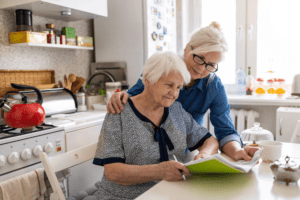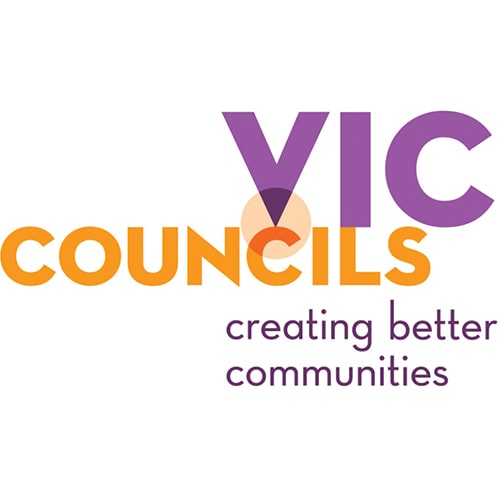As you get older, it is important that you feel safe when you’re at home and out in the community.
Here are some tips to help senior Australians feel safer, avoid potential injuries and reduce their risk of becoming a victim of crime.
Inside your home
- If you have been lying or sitting down, get up slowly. Make sure you are steady on your feet before starting to walk.
- Pace yourself and plan what you want to do in the coming days. Give yourself breaks and spread the “heavier tasks” out rather than attempting to do everything at once.
- Put non-slip mats and handrails in your bath or shower.
- Place a seat at entrance of your home to remove or put on your shoes and boots.
Avoid trip hazards
- Ensure all rooms and hallways in your home are well lit. Always turn on lights when using darker rooms. Install night lights or sensor lights to help you safely access the toilet during the night.
- Remove mats and electrical cords from all walkways or fix them securely to the floor or walls.
- Install railings and provide good traction to outdoor stairs, paths or decks.
- Ensure high traffic areas are clear of obstacles.
- Avoid having small mats in your home – they can be dangerous. If you wish to keep them, make sure they are secured in place, so they don’t slip around.
- Watch out for your pets getting under your feet.
- De-clutter the front steps and paths around your house and ensure they are in good repair.
Emergencies
- Keep a first aid kit in your home and ensure everyone knows where it is.
- Program emergency numbers into your mobile phone and keep a list of them near any phones you have in your home.
- Consider getting a personal alarm – one which can detect falls, contact emergency services or a nominated person and even have GPS tracking. Make your you research product and buy one with good reviews from sights such as CHOICE.
- Ensure your property number can be easily seen from the street or road and is well-lit at night, so that police, fire and ambulance can find your place quickly in an emergency.
- Carry a mobile phone to use in emergencies and have it programmed with quick contacts, eg: Triple Zero (000), your GP and family members.
Use stairs safely
- Ensure your stairways are well lit and you have light switches at the top and bottom.
- Ensure any steps or stairs are level, stable, in good condition, free of clutter and have solid handrails.
- If you wear glasses, leave them on when climbing the stairs.
- Consider painting or adhering a contrasting-coloured strip on the edge of each step to help prevent a misstep.
- Install abrasive strips to any external steps.
- Don’t rush when using the stairs. Rushing is a major cause of falls.
Outside your home
- Lock all external doors and windows in your home, garage and sheds, even when you’re there, to make it harder for burglars to break in.
- Keep the front garden neat and tidy, so your home looks occupied whether you’re there or not.
- Keep an eye out for suspicious activity in and around your neighbours’ houses and ask them to do the same for you. Keep in touch with your neighbours regularly.
- Install motion sensor lights at all entrances, in your driveway and above your garage
- Ensure you can reach your mailbox safely and easily.
- If you live in a rural area, keep a clear description of directions to your home (main roads, landmarks, etc) in handy spots such as your bedside table, on your fridge, near your phone and on any noticeboards.
Getting out and about
- Always be aware of your surroundings. Take a moment to stop and think through where you want to go and what your want to do.
- If you are driving, consider what time of day it is and how tired you are. Think about the return journey. Will it be dark when you need to drive home? Or will you be more tired?
- Use pedestrian crossings, zebra crossings and traffic lights to cross the road. Some seniors are unable to walk quickly, so be extra careful when crossing the street in places where there isn’t a safe crossing.
- Where possible, travel with someone else.
- Use supportive footwear that fits well and that has a sole that provides grip.
- Consider using a walking stick or walker to provide extra stability as you move around.
- You can borrow wheelchairs and scooters inside many larger shopping centres and venues.
Shopping
- If carrying a handbag, hold it close to your body, safely tucked under your arm, at all times. Don’t leave it on shop counters, in your shopping trolley or on the seat beside you.
- Never carry large amounts of cash. Use EFTPOS or credit cards wherever possible.
- Avoid using ATMs on the street if you can – choose ones inside banks or shopping centres.
Public transport
- When taking public transport (buses or trams) get on at the front door and ask the driver to wait until you have sat down.
- If possible, travel with someone else who can help you if necessary.
- If travelling by train, sit in the front carriage, near the driver and use the special seats designated for passengers who are elderly, pregnant or have disabilities.
- Wait for public transport in a well-lit area, close to other commuters.
Mobility scooters and electric wheelchairs
People who use mobility scooters and electric wheelchairs are considered pedestrians. Only people who cannot walk, or have difficulty walking, should use them.
- Make sure your scooter or wheelchair can be easily seen at all times. Use lights and reflectors and install a reflective safety flag.
- Always travel on footpaths or pedestrian walkways where possible.
- If you need to travel on the road, stick to quieter roads, stay as close to the kerb as possible and be sure you’re facing oncoming traffic.
- Wear bicycle helmet for added safety.
- Always stay within the legal 10km/h speed limit and slow down when you’re near pedestrians, cyclists or cars.
- Don’t overload your scooter or wheelchair with packages or shopping as it may affect the balance.
- Try to avoid travelling on uneven surfaces, poorly maintained roads or steep inclines.
- When your leave your scooter, always take the keys with you.
Cars
- Every time you leave your car, close the windows and lock all doors, even if you’ll only be away for a short time.
- Park the car in a prominent, busy and well-lit area, especially if you are returning to it after dark.
- Chat with your GP to see if you’re eligible for an accessible parking permit.
- Remove all valuables from view in your car before you leave it.
Is it time to stop driving?
As you get older, you may experience changes to your vision, hearing, movement, memory, response times or alertness that could cause safety issues when driving. This can happen in your 60s or not until your 80s or later.
In Victoria, you’re allowed to drive providing you are medically safe to do so. You don’t have to pass a driving test or hand over your licence when you reach a certain age. It is your responsibility to monitor any changes in your health and assess your driving regularly to identify possible safety issues.
If you are unsure of your driving ability:
- Consider having a driving instructor check your driving and suggest areas that may need improving. Many driving schools offer driver assessment and refresher courses.
- If you are concerned that you’re not driving as safely, as well or as confidently as you used to, consider visiting your doctor for a check-up. If you’re concerned about an older loved one’s driving, encourage them to speak with their GP.
- Make sure your car matches your driving ability. Get the newest and largest one you are confident driving, research the safety features and have it serviced regularly.
While reducing your driving or giving up a licence and the independence it provides can be difficult, it may become necessary for your own safety as well as the safety of others on the roads.






